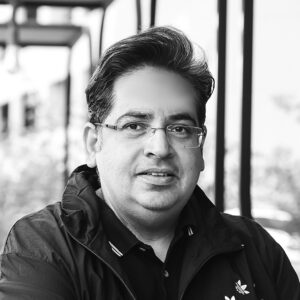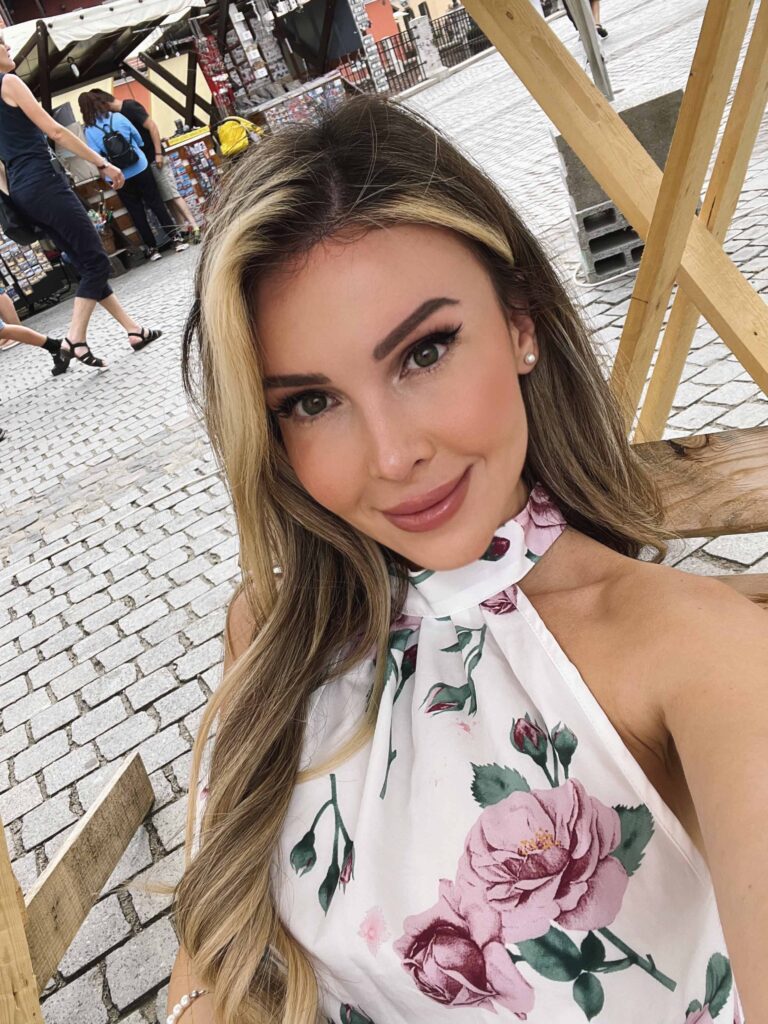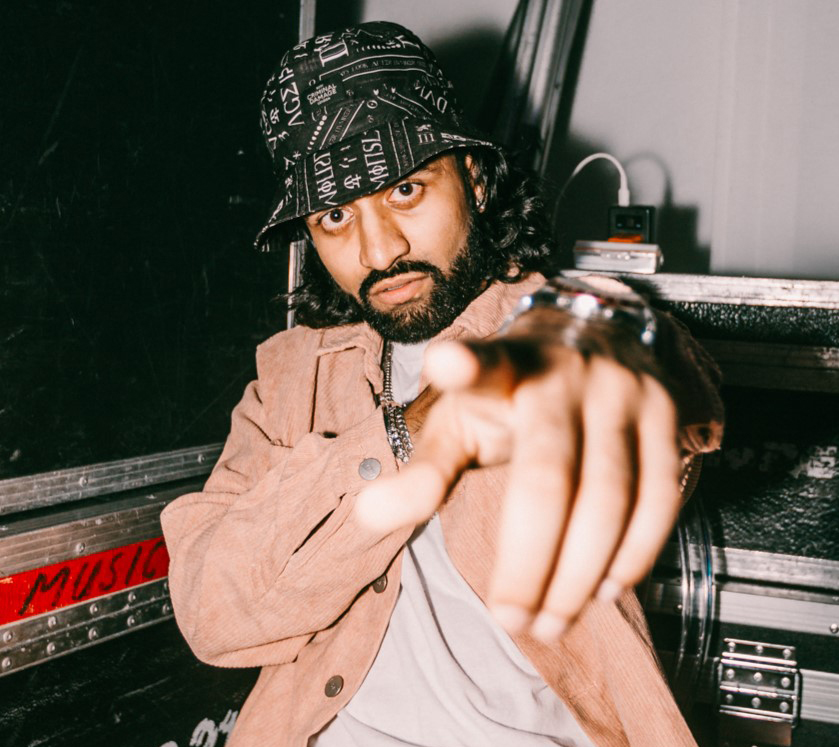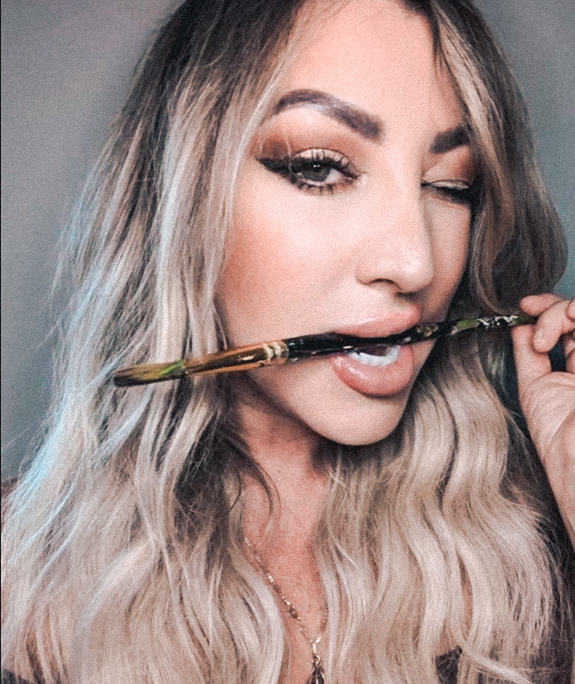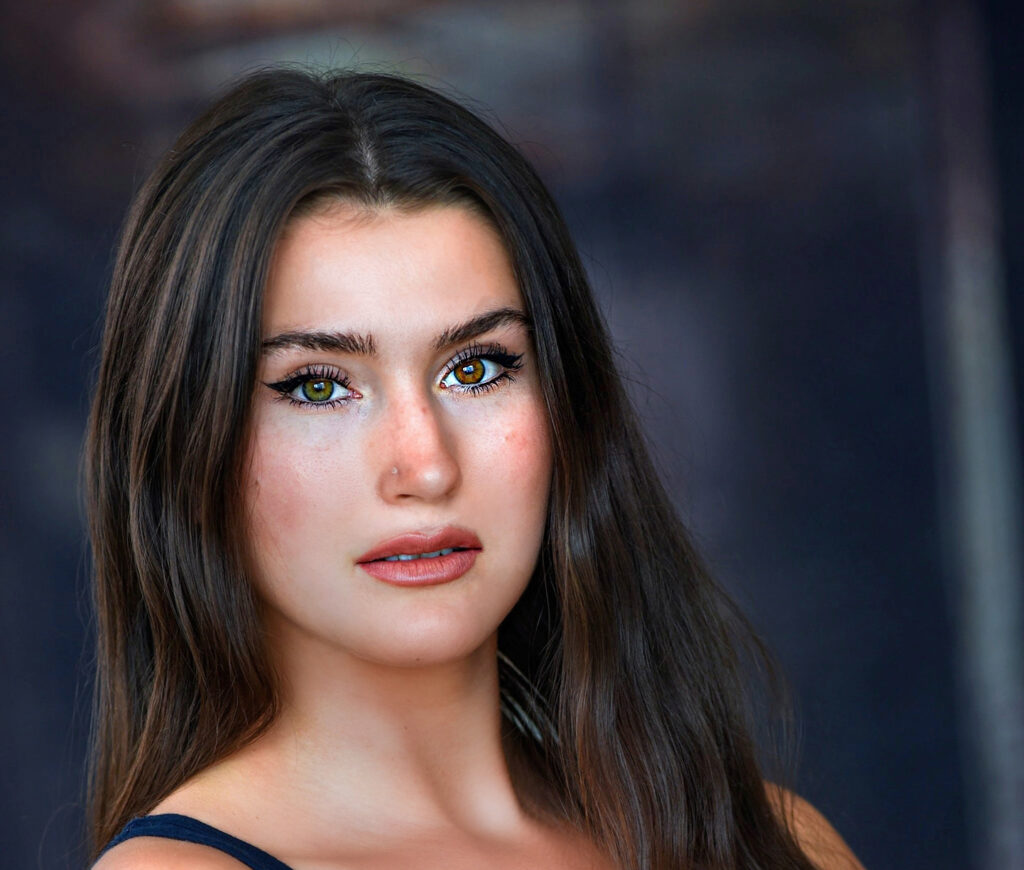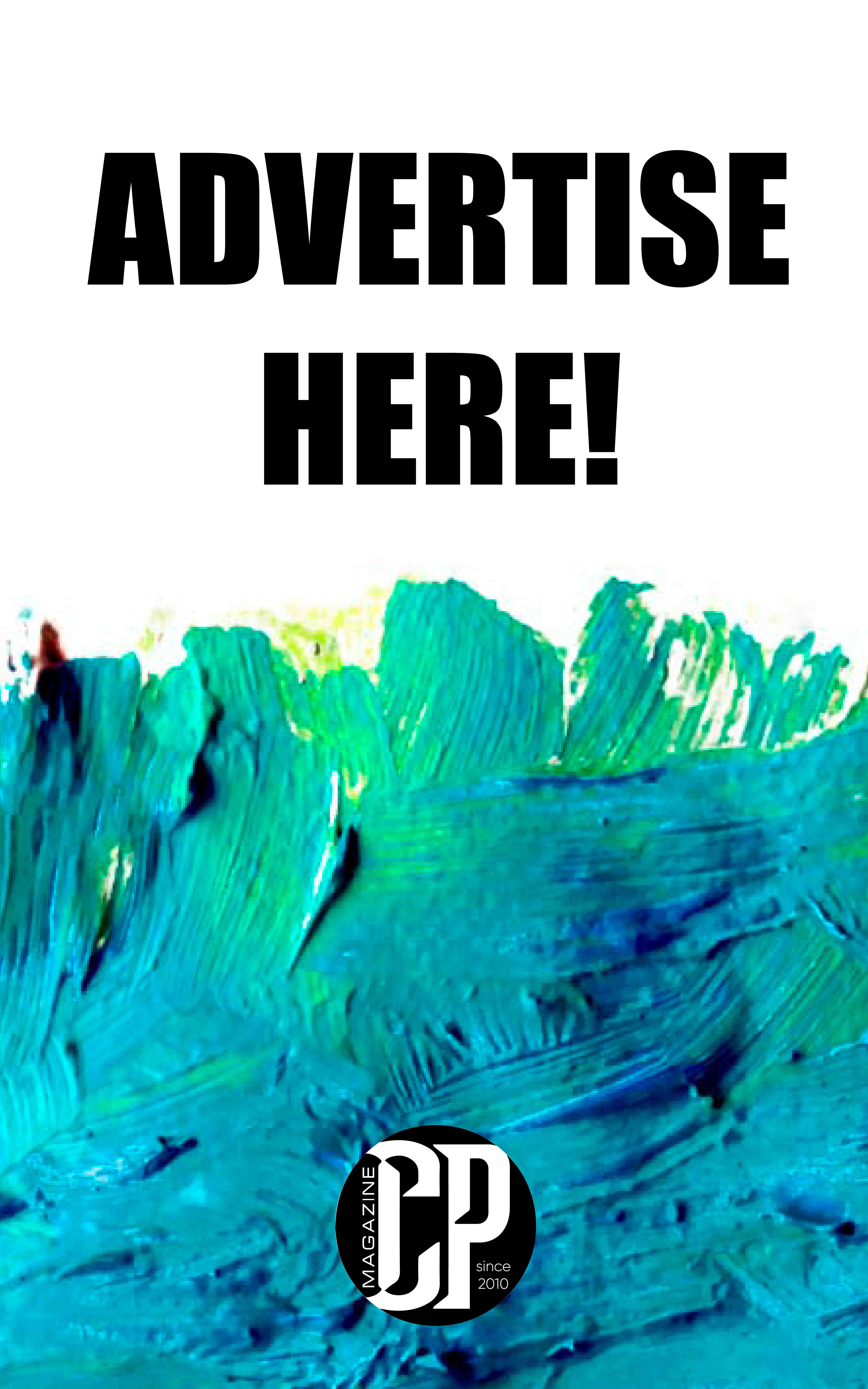“Harmonizing Life’s Challenges: The Unforgettable World of Denielle Bassels.”
Renowned for her soulful jazz vocals and eclectic musical style, Denielle Bassels emerges as a dynamic force in the contemporary jazz scene, earning acclaim with a prestigious JUNO award nomination. Drawing inspiration from jazz legends like Ella Fitzgerald and Nina Simone, Denielle’s musical journey began with a serendipitous encounter in Switzerland, propelling her into the world of jazz performance. Overcoming initial hurdles, she pursued formal education at Humber College, where she honed her craft and penned acclaimed tracks like “Cool Cool Water.”

With her latest album hailed as a testament to resilience and artistic integrity, Denielle reflects on the arduous yet rewarding process of its creation, marked by setbacks and triumphs alike. From painstaking re-recording sessions to collaborative synergy, Denielle emerges as a consummate artist driven by a relentless pursuit of excellence.
Looking ahead, Denielle remains steadfast in her dedication to pushing the boundaries of jazz music, aspiring to reach audiences far and wide with her evocative melodies and heartfelt lyricism. With upcoming projects on the horizon and a steadfast commitment to artistic evolution, Denielle Bassels stands poised to make an indelible mark on the world stage, driven by a singular vision and unwavering passion for her craft.

Congratulations on your JUNO award nomination! What inspired you to pursue jazz music as a career?
Thank you so much! I’m so thrilled! Music has always been a source of healing for me. Truth be told, when I was growing up, I would often miss school to stay at home and listen to records. I would spend many a day hiding from the world to study the greats like Ella Fitzgerald, Nina Simone and Aretha Franklin. I call them my voice teachers because I never had a voice lesson until after I started performing. It was when I went to Switzerland as an au Pair (nanny) that I started actually singing and performing Jazz. It was an accident. I got up and sang at a jam one night and was suddenly in a jazz combo. It felt like I had found my true path and I found that as long as I was making music, all was well in my world. It was then I said to myself that it would be impossible for me not to do music all the time.
Can you tell us about your musical journey and the challenges you faced?
Once I found jazz in Europe, I realized that I was missing a ton of skills. I didn’t know how to count in a band or scales, or chords etc. Everything was by ear. I knew I had ideas about what I wanted to hear but I didn’t know how to articulate anything. I decided to come back to Canada and get a firmer foundation to draw from. I bought a couple books and a fisher price piano and began learning from scratch. There were no funds to get help and for that reason I didn’t even think of reaching out to anyone. A year later I auditioned for Humber College and got in. It was really hard to keep up at first and I found myself skipping classes a lot to go learn ear training with Ear Master Pro, ha..ha, but eventually I was caught up enough to not cry after a class and ended up getting my Bachelor of Contemporary music. I wrote “Cool Cool Water” there and won the John Lennon Song Competition in the Jazz category, that really helped pave the way for an album.
How did you develop your unique style as a jazz vocalist?
I think if you listen to lots of different styles of music like a fiend, your voice is just going to become this mystery flavour. I loved jazz but I also loved Country singers like Shania Twain, Dolly Parton and Patsy Cline. I loved British and Jamaican ska like the Specials, Desmond Dekker and Dawn Penn, punk bands like Operation Ivy and the Dead Kennedys. When I got to Europe, I discovered the world of Django Reinhardt and I knew that would become a major influence, especially with my first album. My voice always resonated best with Jazz, which is a music that allows individuality, so I’ve always embraced that about it.

Who are some of your biggest musical influences?
All named above, but I would add Sam Cooke, Joni Mitchell, and Nina Simone.
How do you feel about being recognized for your album with a prestigious nomination like the JUNO award?
I’m absolutely thrilled. We call this “The Little Album That Could”. It faced a series of unfortunate events during the pandemic and so many setbacks. Making music these days is very expensive and I was lucky to have the support of my fans, in addition to grants. So, it was a long road but along the way I made some great friends and collaborators and amazing musicians. Lily Frost introduced me to Thom McKay from Exeter Sound Studios to record some vocals. He loved the tunes and when he heard what I was going through with the album, he rolled up his sleeves and vowed to help me through it. We found we worked well together and ended up with an album that exceeded all expectations. Everyone who was part of this album was just so lovely and incredible at what they did. I’m proud of every single song on this record. To be recognized by the Junos as one of the top 5 Jazz albums of the year in Canada is just a testament to the love of making music for music’s sake.
What is your personal favourite song on the album and what was the inspiration behind that song?
I’d say it’s a tie. Tangled Thread speaks to my love of juxtaposition and to the whimsical and unexpected. It’s so fun to play live and I get a chance to bring awareness to the reality behind the façade of the super fun rhythms and melodies – the lyrics of the song are actually quite dark compared to its bright tempo. “Gone” is one of the most vulnerable songs I have ever recorded. Drew Jurecka wrote and played such gorgeous string arrangements, really drawing out the soul of the track. This one was the hardest for me to write because it speaks of a truly difficult period in my personal life that I had to revisit in order to work through it. While writing it, I realized that I had been a lot stronger than I thought. It was kind of a turning point in my life from naive and lost girl to a strong, powerful woman.
Can you share some of the memorable experiences or challenges you encountered while recording the album?
The album was actually recorded twice. The project had been dropped during a time when many were relocating due to the pandemic. All involved had been paid and the money was nearly all spent but the music could not be used due to some crazy glitches and production issues. It was really a devastating time and for a while, I thought all was lost. I decided that I would just begin, start re-recording some things and became determined to just pick away at it until it was done. When I met Thom McKay, it all started to come together. Picture a big ball of Christmas lights as big as a shed and that’s what me and Thom had to untangle. In the end we got a phoenix rising from the ashes type thing and what I had envisioned from the beginning came to life.

Could you describe a typical day in the studio when you were working on your album?
Since a lot of the album was recorded remotely and then brought together at the studio (because of isolation), A typical day would be recording vocals or comping, editing. There was lots of crying, lots of pee your pants laughter and one occasion where I had tracked all day before I realized I was wearing my pants inside out. I was so focused on the music I had forgotten how to dress myself.
What do you think sets your vocal jazz album apart from others in the genre?
I feel like this album brings other genres to the table. Someone who doesn’t know anything about jazz can dip a toe in and begin to understand how free flowing it is. I wanted to weave together different jazz influences to tell the story of this journey. Each original composition is inspired by personal experiences, making the album deeply intimate yet universally relatable. As the truth of these experiences unfolds through the music, listeners are drawn into a more tangible and meaningful connection with the melodies and messages conveyed.
Are there any particular messages that you hope listeners take away from your music?
It is always an honour when listeners choose a recording to add to their collection. Especially these days when there are so many songs out there! Once in a while someone tells me that my song touches them, and this is really the greatest gift I can receive as a songwriter. I want ideally, for my fans to see themselves in these songs.
What do you think is the future of jazz music and how do you see yourself contributing to its evolution?
All music is evolving including jazz. I can’t say where it will travel but I do know that listeners will always respond to honest, creative music.
How do you stay connected with your audience?
I am on Instagram, Facebook and TikTok and perform as much as possible. I love travelling to new cities and discovering new people and discovering music – I also must admit that I am one of those people who likes old-fashioned letters and stationery. If you buy a CD on bandcamp you are likely to get a personal written note by me saying hi and thanks for listening.

What are some misconceptions people might have about jazz music, and how would you address them?
That it’s brainy or old fashioned. While both these things can be quite cool in music, the spectrum of Jazz is so vast it’s impossible to pigeonhole. Jazz is and always will be, essentially, in all music. My approach is to balance honouring the tradition while also adding something contemporary and unexpected.
How do you stay inspired and motivated as a jazz artist especially during challenging times?
Listening to all kinds of different music all of the time and going to live shows as much as possible. Learning new skills keeps it all fresh and inspiring. I love picking up new vocal styles, rhythmic styles and implementing new instruments into the arrangements that I haven’t worked with before.
What projects are you currently working on, and what can your fans expect from you in the near future?
Working on my third full studio album, which I am so pleased to share was awarded a FACTOR (the Foundation Assisting Canadian Talent On Recordings) grant – I am so grateful for the support which makes this process possible. I’m also currently writing the fourth album as we speak! Lots of music and some surprise singles are on the way.
Are there any artists that you would love to collaborate with in the future?
YES! In case he is reading this: Jacob Collier! And I would absolutely love to write and arrange a song with Fiona Apple.
What advice would you give to aspiring jazz artists?
Hone your craft, study your idols, play as much as possible with other musicians, and always try to reach outside of your comfort zone.
Lastly, what milestones do you hope to achieve in your career moving forward?
I want to tour the world with my music, perhaps work with the theatre and film at some point and one day, I plan to win an Oscar for best original song!
